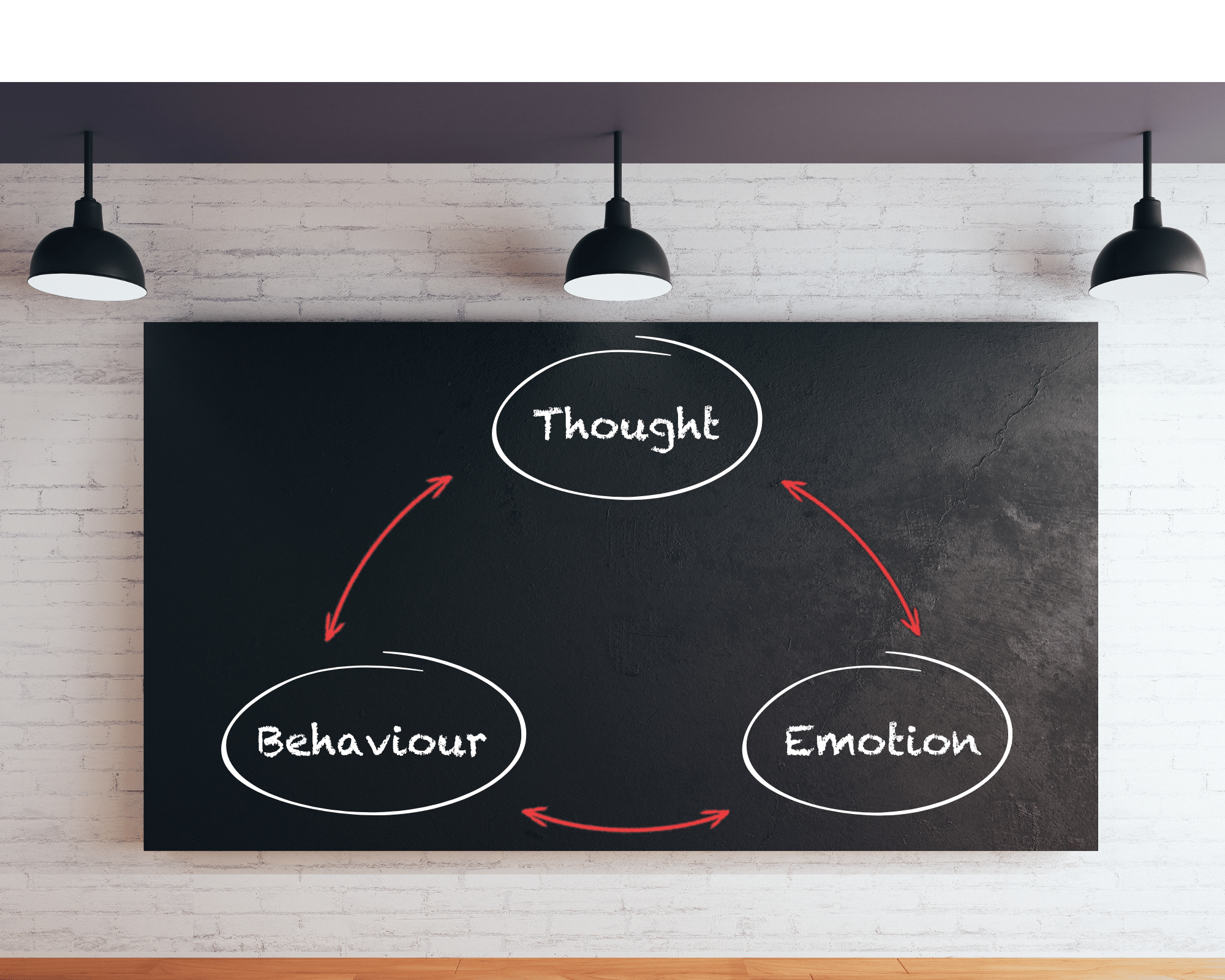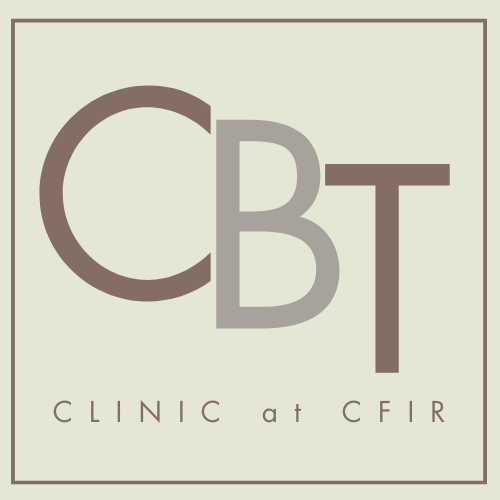
THE CBT CLINIC: Symptom Distress Reduction

Our Cognitive-Behavioural Therapy Clinic’s mental health practitioners provide effective interventions to help you cope better and manage the stress, distress and symptoms you are experiencing that affect the quality of your life. Practitioners within the clinic provide interventions from CBT, Dialectical Behavioural Therapy (DBT), Exposure and Response Prevention (ERP), Mindfulness-based therapy and Meditation, and Acceptance and Commitment Therapy (ACT). The effectiveness of these modalities has been established in numerous research studies. Our practitioners will help you deal with the thoughts, feelings and behaviours that are distressing for you through interventions designed to build new skills, and ways of managing and coping with your distress.
CBT TREATMENT
What’s CBT?
Cognitive-behavioral therapy (CBT) is a type of psychotherapy that can help you tackle some of the debilitating symptoms of anxiety, depression and other difficulties. In CBT, what you think (e.g.., thoughts, beliefs), what you do (e.g.., behaviour) and what you feel (e.g,., feelings, emotions, sensations) are all interrelated and by making changes to one of these, one can create improvement in the others.
CBT also focuses on problem solving, finding solutions, improving coping, helping clients to challenge difficult cognitions (e.g., thoughts, beliefs) and change problematic behaviours. Your emotional or behavioural responses are also changed through exposure to specific situations, cues, narratives or places that trigger distress and maladaptive responses. Homework is often assigned.
CBT is a short-term treatment that typically lasts between 10-25 sessions. Treatment duration varies depending on the issues being addressed (i.e., severity, other overlapping mental health conditions etc). Success also depends on your participation in the treatment in terms of completing exercises aimed at improving your distress.
What’s DBT?
DBT is a form of psychotherapy that addresses emotional distress and many other issues by focusing on improving distress tolerance, emotion regulation and interpersonal skills, and by supporting individuals to enhance mindfulness practice.
What’s Acceptance and Commitment, Compassion & Mindfulness-based therapies (ACT, MBSR)?
Acceptance and Commitment Therapy supports an individual to learn how to observe, be less reactive, accept and be non-judgmental of internal thoughts or emotional reactions. ACT supports you to act on the basis of core values as opposed to being entangled in the thoughts and emotional reactions that are at the root of your concerns. Developing a more compassionate outlook towards your self is also important for remediation of various mental health concerns. Treatment focuses on developing the capacity to observe, adopt a non-judgemental stance toward thoughts and feelings, and diminish reactivity, while anchoring the self in core values to promote clarity in thinking and action.
Typical symptoms and Problems targeted by cBT
Symptoms
- Anxiety (e.g., excessive worry about the future)
- Social Anxiety (e.g., fears about other’s evaluations) and Generalized Anxiety
- Panic
- Phobias (e.g., spiders, elevators, flying)
- Depression (e.g., thoughts and beliefs that create hopelessness)
- Obsessive-compulsive disorder (i.e., ruminations, intrusive thoughts, repetitive behaviors)
problems
- Procrastination
- Perfectionism
- Self-criticalness
- Anger Management
- Emotional regulation
- Assertiveness
The CBT Clinic Provides All Patients with the Following:
- Strategies and tools to reduce distress
- Resources (i.e., readings, apps for telephone)
- Evidence-based Interventions
- A Therapist To Meet with You Weekly In-Person or Online
What to Expect in a CBT session?
CBT tends to be very practical and present-focused. You will be provided education, learn new skills, engage in problem-solving and given homework to support you to deal with your distress and symptoms. Therapy focuses on the ‘here and now’ problems and the situations that evoke the deepest distress and symptoms. Your therapist will collaborate with you to identify the problems you would like to address and supports you to define goals that are realistic and most optimal and healthy for you. You will be able to talk about everyday problems and deal with the thoughts, feelings and behaviours that block you from being able to achieve your goals. The new skills you learn will help you to cope better.


Find A Therapist
We have many mental health therapists at both our locations who offer this service. Please select a location below to see a list:

